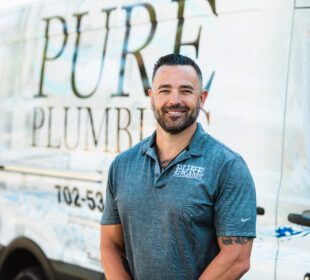To reduce the use of water in the home and lower your bill each month, there are a number of ways to conserve water and become an eco-friendly home. Many people assume that they must make extreme changes to use less water, but there are simple steps that can reduce your usage significantly throughout the year. By practicing a few simple methods, it’s possible to only use what you need both in and outside of the property.
Helpful Water Conservation Tips
- Replace the showerheads in each bathroom of the home with low-flow to ensure that less water is used with showers. You can also reduce your shower time by two minutes each time, which will conserve an average of five gallons of water.
- Inspect your home for possible leaks by reading your water meter before and after two hours when the water is not in use. If the gauge has changed at all, some leaks are present on the property.
- By insulating your water pumps, you’ll be able to have the water heat up in a shorter period without wasting as much when getting in the shower or using it while cooking.
- Replace washers on faucets that may have excessive drips to conserve up to 2,700 gallons of water annually.
- Instead of using water to defrost meat, consider leaving the food item out overnight or placing it in the microwave for several minutes.
- Many homeowners make the mistake of over-watering their lawns, which can be prevented by watering them every five days in the summer and every 10 days in the winter.
- Install a water-saving filter in a pool to reduce the amount of gallons that are used each month.
- Check a well pump on your property several times a year to look for water that is being wasted while it’s not in use. This can be done by listening to the sound of the pump coming on and off.
- Instead of throwing out water that is no longer needed, reuse it to water the outside plants or to clean.
- Instead of relying on a garbage disposal to throw out waste in the kitchen sink, begin a compost pile that won’t require water. This will protect your septic tank from malfunctioning and will reduce the solids that it contains by up to 50 percent.
- Lawns should be watered in the morning when the sun is not out to prevent evaporation from occurring.
- A common habit for most people is to leave the water running while brushing their teeth or washing their face. Shut the water off while performing the tasks and only turn the water on when it’s needed.
- Use food coloring to check each toilet in the home for leaks. The food coloring will quickly appear in the tank after 30 minutes if leaks are present.
- Clean the driveway and sidewalk with a broom instead of using water to wipe down the pavement.
- Instead of wasting water to grow seasonal plants, rely on using native plants in the yard, which require less water and are often drought-tolerant. The plants will only need to be watered every few days.
- Installing a shut-off nozzle on a garden hose will prevent having too strong of a flow that can waste several gallons of water in just a few minutes. Leaks can also be avoided by shutting the water off at the faucet instead of at the nozzle.
- To conserve more water, it’s important to avoid using the toilet as a trash bin. Paper, dirt, or other waste can be disposed of in the garbage instead of flushing it down the toilet.
- It may seem harmless to over-fertilize a lawn, but this can require more water to hydrate the grass and maintain its condition.
- Adjust the sprinklers to ensure that they are pointed at the lawn and do not reach the sidewalk or street where water can be wasted.
- Reuse water that is used in the shower to water a garden or plants that are on the property. You can take a shower with a few buckets to catch both the used and unused water.
- Avoid installing a water-to-air heat pump, as air-to-air models are more efficient and conserve a higher content of water.
- Replace a toilet handle that is prone to sticking and continues to run, which wastes water on a consistent basis.
- Add irrigation devices to your property with soaker hoses and micro and drip irrigation to reduce your water consumption.
- Use other features in your garden to decorate the outdoor space instead of relying on fountains or ponds.
- Only wash clothes and dishes in full loads with the settings properly adjusted to prevent excess water from being used.

